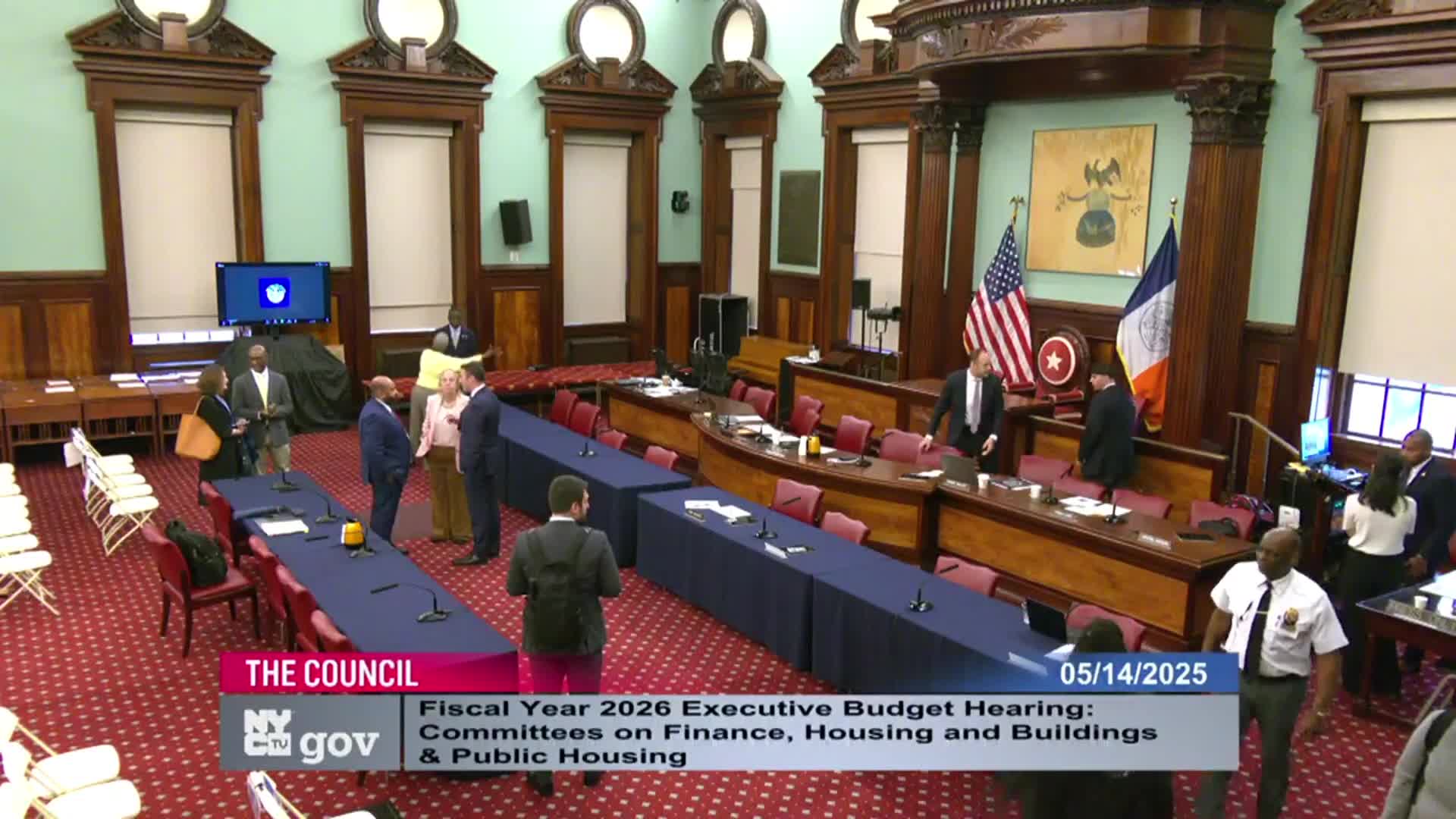Article not found
This article is no longer available. But don't worry—we've gathered other articles that discuss the same topic.
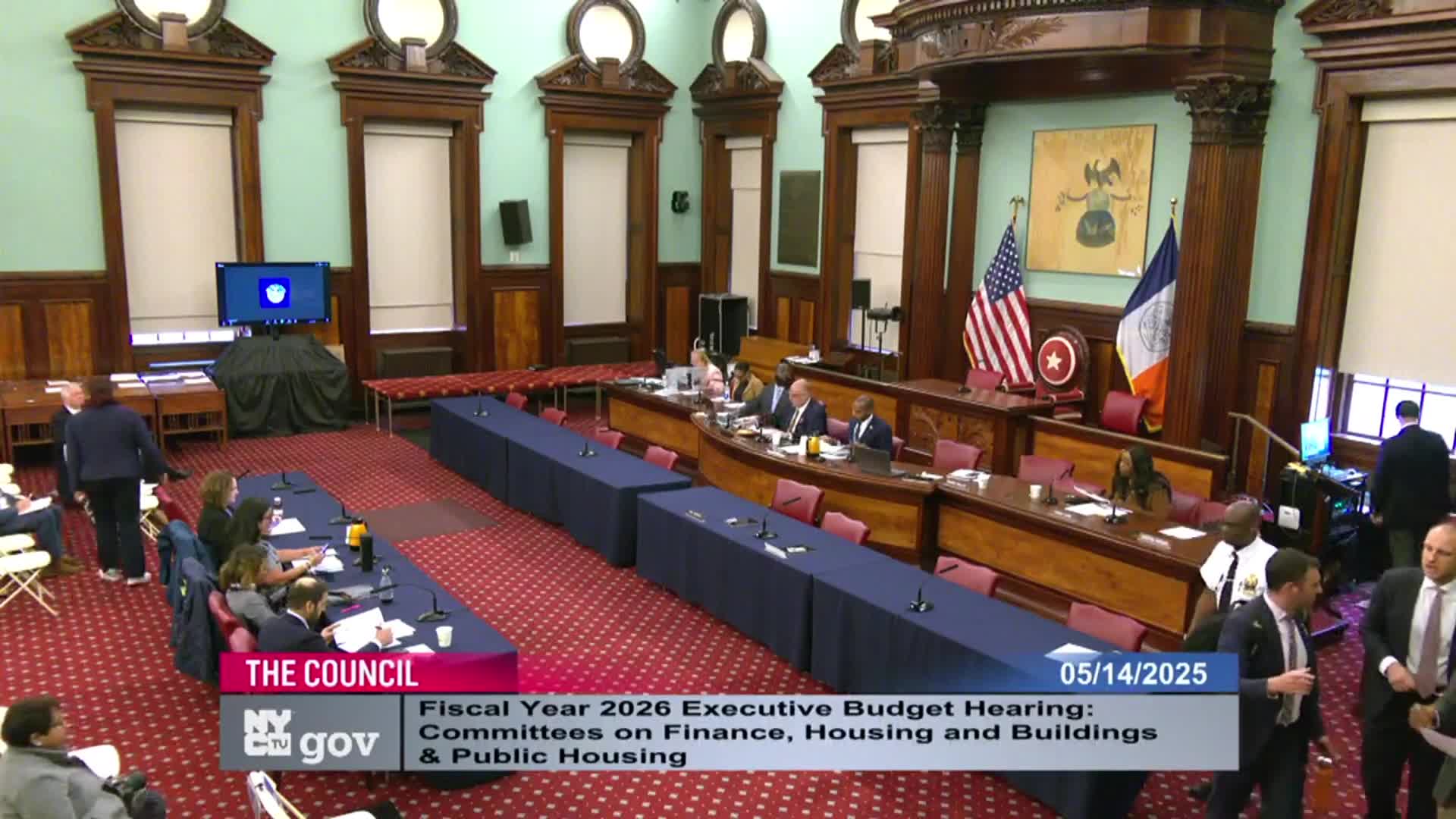
NYCHA CEO outlines budget picture as council presses on federal cuts, PACT and vacancies
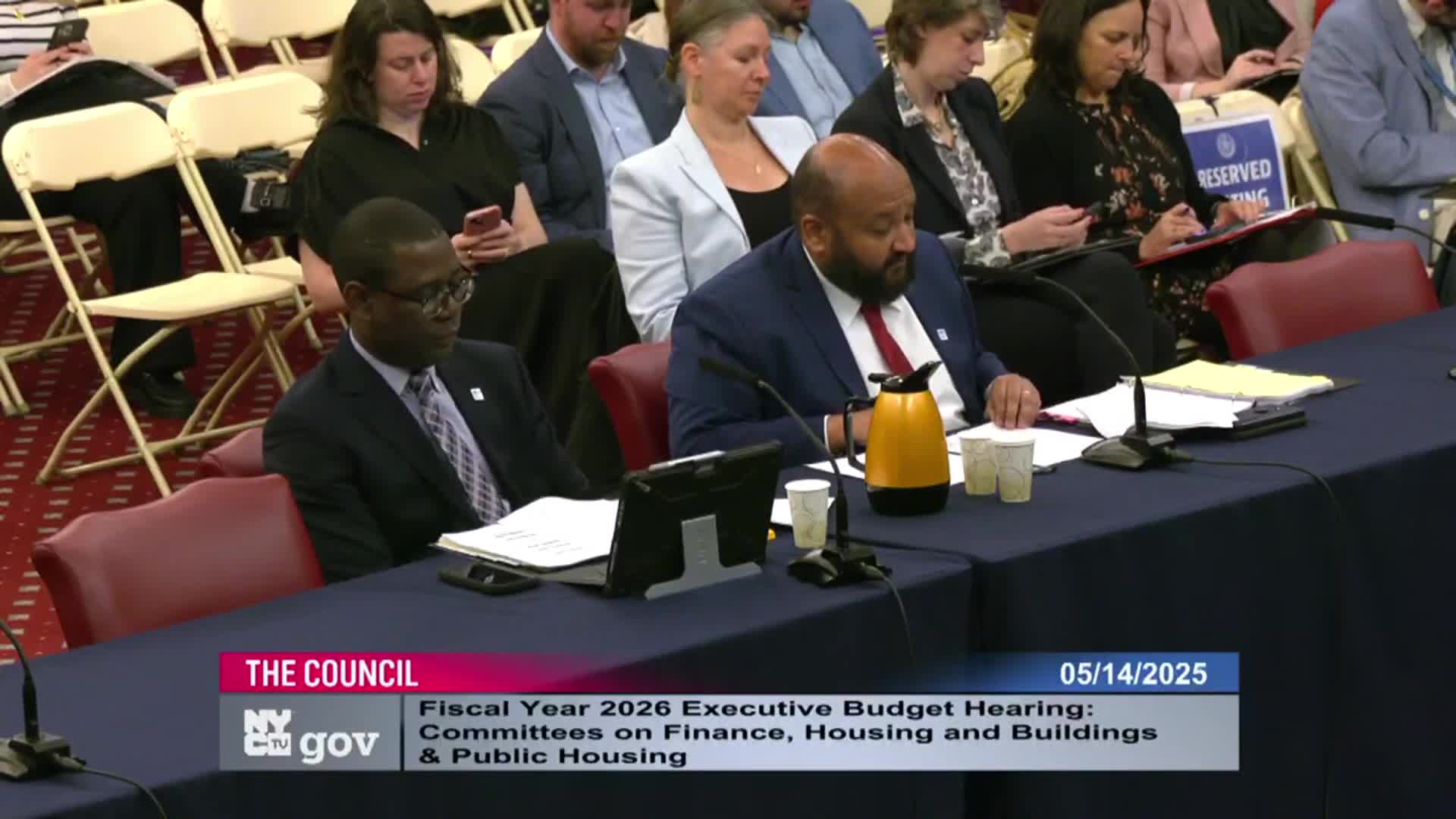
Council presses HPD on Housing Connect reforms and Section 8 rent-increase backlog
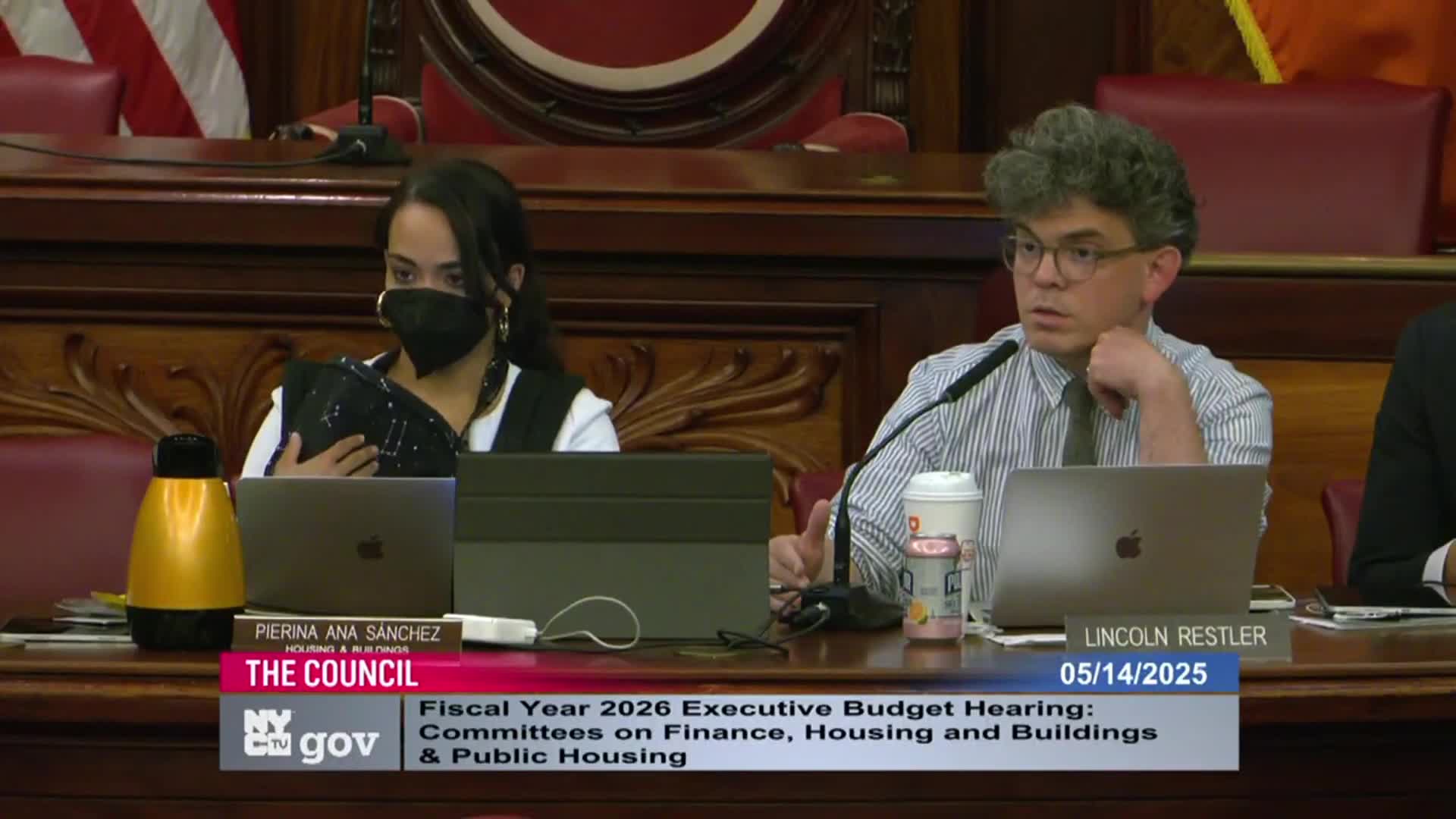
Council urges funding for preservation, seeks costs for third-party transfer reform
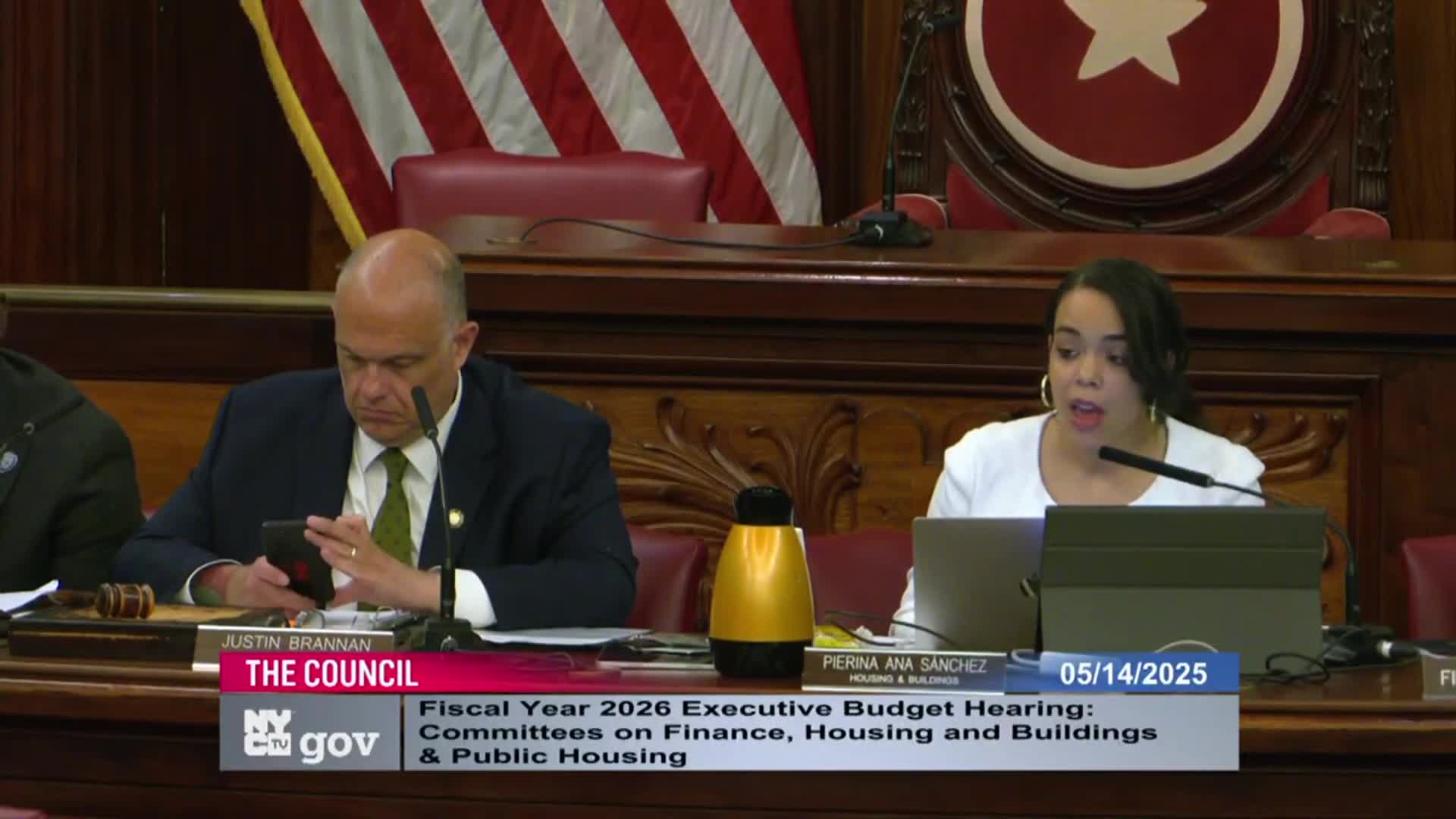
Council seeks clarity as administration reshapes 15/15 supportive housing plan
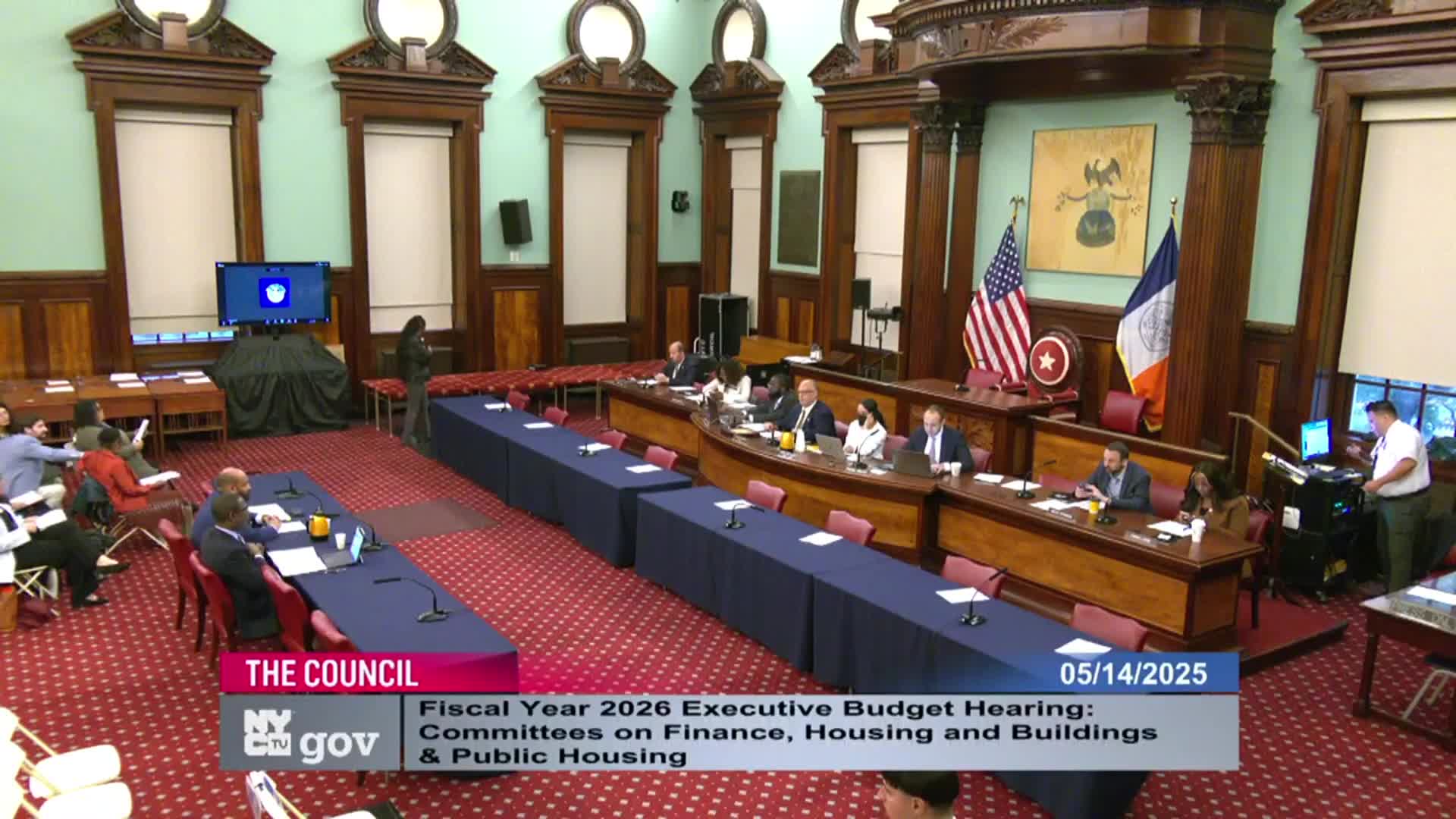
Council presses HPD on FY26 cuts, vacancies and preservation capacity
